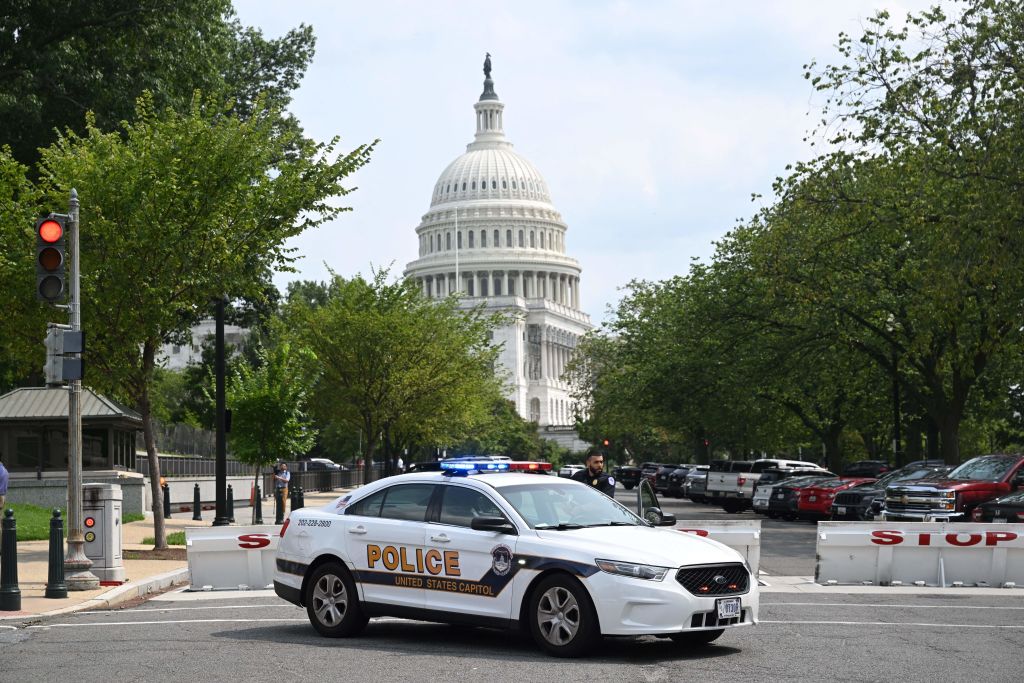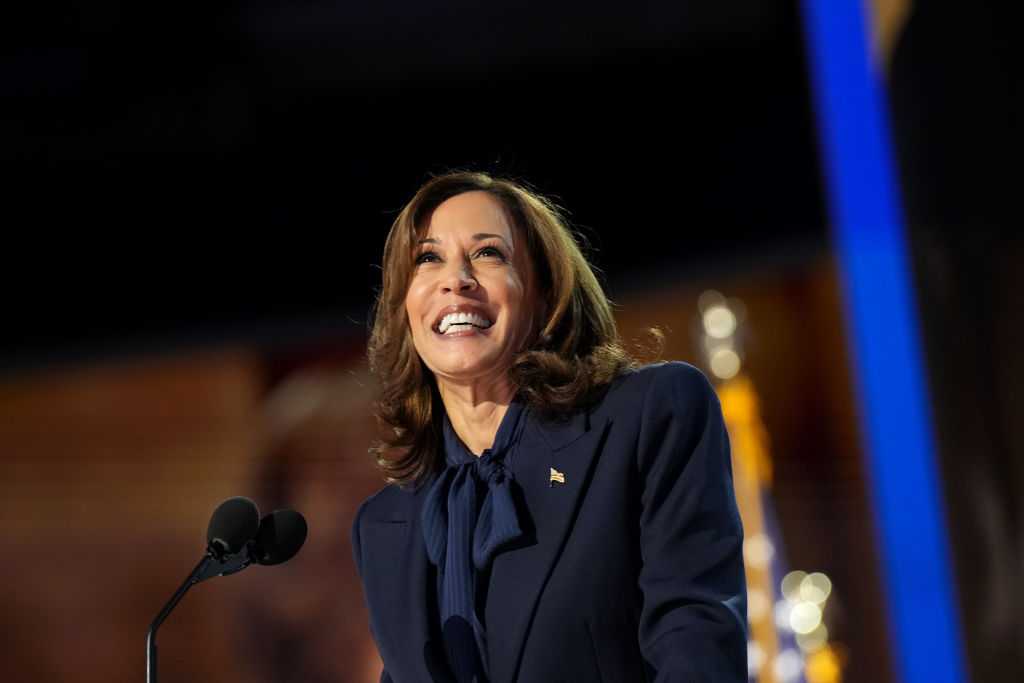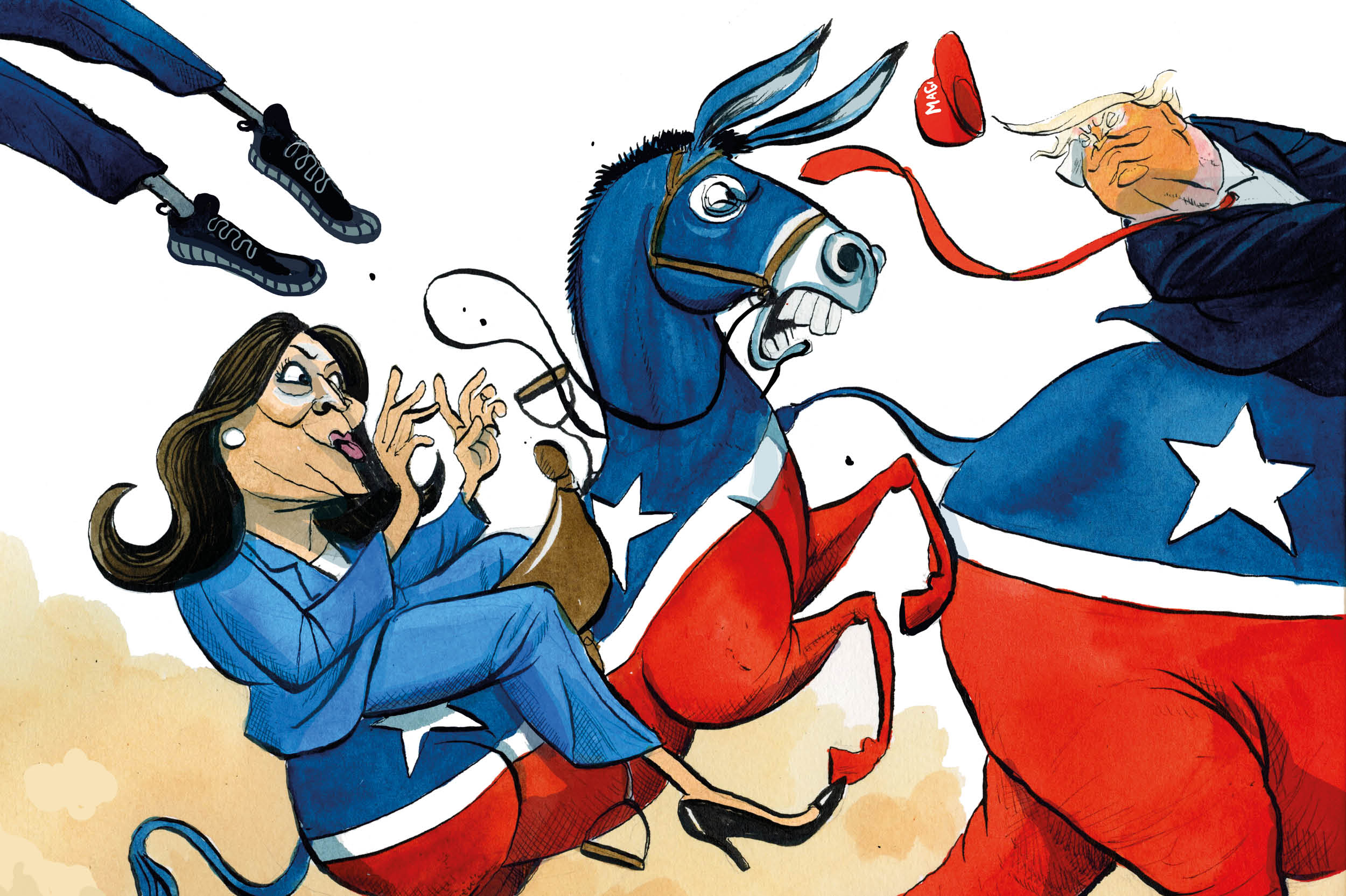Muriel Bowser is a woman with a plan. In late February the mayor of the District of Columbia unveiled a $400 million, five-year economic development strategy to revitalize the capital’s downtown. It involves converting empty office space into residential units and rebranding parts of the neighborhood. Soon, visitors to Washington will be able to watch homeless addicts shoot up in “Historic Green Triangle” and get their phones stolen by moped-riding teenagers in the “Penn West Equity, Innovation & University District.”
Bowser has drafted these desperate measures in a belated response to the desperate times. As the forty-two-page report concedes early on, “once a bustling employment center, Downtown DC has faced an outflow of office workers in response to remote and telework trends.” Doubtless the pandemic and resulting rise of remote work have played a role in the deterioration. Government employees have been particularly reluctant to return to the office five days a week — and given that they’d have to spend eight hours a day with other government employees, it’s hard to blame them. The knock-on effect is that the consultants and lobbyists hoping to influence or cajole the government don’t feel the need to return to the office either. Countless business meetings and happy hours have been reduced to Zoom calls and emails.
But there’s a more significant reason why DC workers don’t want to go downtown — and the word merits just a single mention in Bowser’s report: crime. Violent crime was up 39 percent last year in the city, with the murder rate rising to heights not seen since the mid-1990s. Why would you drive in to the office when your car could be hijacked in broad daylight by a perpetrator who won’t face consequences? Safer to stay in Virginia or Maryland.
It is deeply unfashionable in the left wing of the Democratic Party to acknowledge that urban crime has become a problem in the last four years — “public safety” is Bowser’s preferred phrase, and she’s ringfenced $31.5 million for it over the next five years. But if any of that money is intended for actually hiring more police officers, her report does not indicate it.
Life is rough for the few cops who still work for the Metropolitan Police Department — they have left the force by the hundreds, putting the department headcount at a half-century low. As Tim Rice writes on p.12, “Rather than cops deterring crime, cops are deterred by public scrutiny and do-nothing prosecutors.” No single figure is more responsible for the sense that crimes have no consequences than President Biden’s pick for the District’s US attorney, Matthew Graves. Graves’s prosecutorial philosophy is a radical one: he basically only does it if the violent crime occurred on January 6, 2021.
The Spectator was a Cassandra on the perils of progressive prosecutors in urban centers fifty-two issues ago, in December 2019. Back then, we didn’t know how good we had it. DC’s decline since is directly attributable to the do-nothingism of the likes of Graves — along with changes to police protocol, weaker sentencing guidelines for judges and underfunding for the parts of “public safety” that make progressives blanch… but actually keep the public safe.
Urban crime isn’t a simple left-versus-right issue; it’s more like a far-left versus everyone else issue. And of Democratic Party core voters, African Americans are among the more conservative: they want safe neighborhoods, gangs held in check and bright futures for their kids. If progressives know how the surge in crime from lax prosecutions leads to good outcomes for people in low-income areas, they haven’t bothered to articulate it.
Not only are the workers no longer commuting into DC — the affluent people and businesses here are skipping town too. The city’s professional basketball and hockey teams, the Wizards and Capitals, are planning to flee across the Potomac to a new arena in Alexandria, Virginia, rather than force their fans to brave Downtown. Stores are shuttering as retail theft goes unpunished. And the violence is spilling over into upscale neighborhoods, which is sure to send residents scattering. On p.16, Matt McDonald documents the failing gentrification effort in Southeast’s Navy Yard, where the plate-glass buildings see bloodshed that would make Stanley Kubrick squirm. Matt’s leaving DC this month and doubts he’ll be the last.
On p.18, Patrick Hauf reports from Dallas, where local officials seem to have cracked the problems plaguing DC: the mayor works with the cops on “hotspot policing” and has seen a drop in crime as a result. The bureaucracy in DC, with the mess of federal and local officials, means copying the Dallas approach would be arduous. Yet how is America supposed to run the free world when it has lost control of its own capital city?
Radical problems sometimes call for radical solutions. Congress could revoke Home Rule, the law that allows DC to govern itself, and take back control over the District as laid out in the Constitution. In 1847, residents in the part of town that originally belonged to Virginia voted to retrocede their territory, becoming Alexandria. Scared Washingtonians could end taxation without representation, scythe through the red tape and vote to cede most of the rest of the land back to Maryland (excusing Congress and the White House, of course, consistent with the Constitution). Or better yet, they could opt to join Virginia instead: apparently they’re about to get a basketball team. And a hockey team.
This article was originally published in The Spectator’s April 2024 World edition.


























Leave a Reply